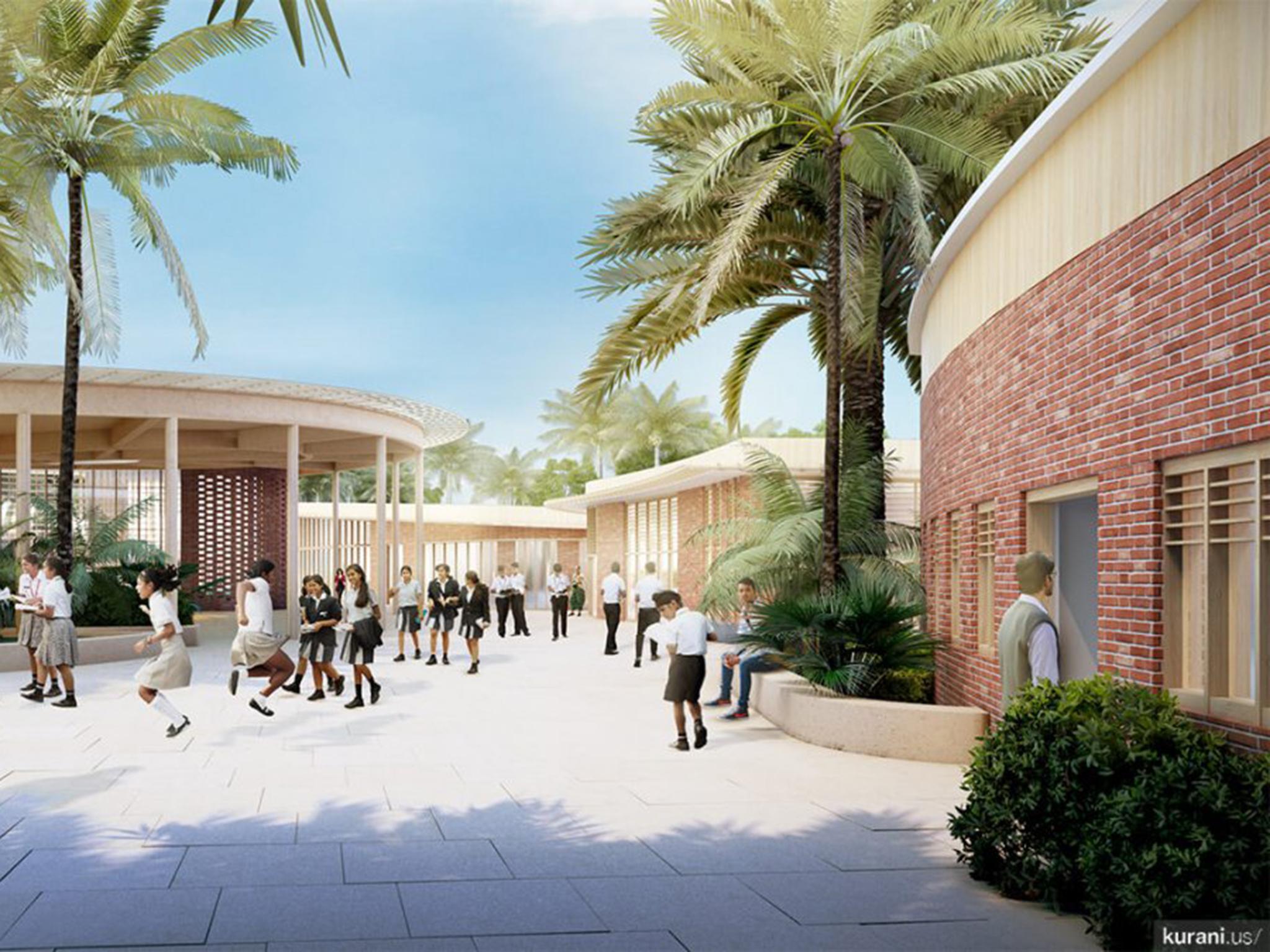A new school in India will prioritise happiness instead of grades – take a look inside
Construction starts this year and will finish in 2020

Around the world, most secondary schools share a similar design: there are hallways that lead to classrooms, a front and back entrance, a cafeteria and a gym.
Near Chennai, India, a new boarding school called Riverbend aims to rethink traditional architecture – and curricula – in education. Instead of one large, central building, the campus will include more than a dozen smaller facilities that are designed to focus on a range of subjects, including maths, entrepreneurship, literature, art, meditation, history and physical education.
The goal is to prioritise the middle and high school students’ happiness rather than grades, Riverbend School’s lead architect, Danish Kurani, told Business Insider.
Construction will start this year and finish in 2020. Take a look below.
In a rural area outside Chennai, Riverbend School will host its first class of 300 students (plus faculty, staff and an artist-in-residence) in 2018.
Students will live there on weekdays and travel home at weekends.
The school was designed by the New York-based firm Kurani, which specialises in educational spaces.
Mr Kurani’s team designed the campus like a village, he says. The site will centre around a central plaza, with classrooms outside it, student and faculty housing outside that and then agricultural land on the outskirts, where students will farm.
When planning Riverbend, the firm looked to a long-running Harvard study that has tracked people over the past eight decades. It suggests that strong relationships contribute to a happy life.
The campus will include many communal spaces, dubbed “chat labs”, where students can discuss projects with peers or teachers.
Students will decide their personal curricula and schedule.
Vivek, Kiran and Indira Reddy, the school’s co-founders – who come from an entrepreneurial background – believe kids will stay more engaged if they learn things they care about.
Rather than just memorise science and maths problems, students will work on projects that look for solutions to real world issues, such as food access, clean energy development, housing and global health.
Students might learn how to code software, build a rocket, or write a play – whatever interests them.
“You take for granted what a school is. Most people think it’s just a bunch of hallways and classrooms,” Mr Kurani said. “But if you’re going to change the learning model – and focus on students’ character, happiness and emotional intelligence – then we have to question, ‘what are the types of spaces we should offer kids?’”
The campus will also feature meditation spots, a kitchen for culinary classes, recording and dance studios and a storefront where students can launch businesses.
There will be more subtle architectural differences between Riverbend and typical schools as well.
The buildings will have curved corners to encourage people to congregate on all sides. And no building will be taller than two storeys, which Mr Kurani believes will make the campus feel more intimate.
Riverbend hasn’t yet determined whether students will receive grades, which Mr Kurani says can breed unhealthy competition. They will not take standardised tests either.
The school will follow a recent trend in American education called “personalised learning”.
The teacher doesn’t lecture, but acts more as a facilitator to students, who choose how and what they learn.
An on-campus research institute will study the efficacy of Riverbend’s techniques, which the faculty plans to share with other educators around the world.
The school’s larger goal is to rethink traditional education and build a happier and more compassionate generation.
“The focus will not just be cramming kids’ heads with information, regurgitating it out to us and having no sense of why it matters,” Mr Kurani said. “We want to raise people who are good for our communities. It’s about flipping the priorities of traditional pedagogy.”
Learn more from the video below:
Read more:
• May tackles new Brexit Rebellion
• Philip Hammond and Mark Carney are in China to secure £1 billion of trade deals
• Facebook admits that social media can be bad for you
Read the original article on Business Insider UK. © 2018. Follow Business Insider UK on Twitter
Subscribe to Independent Premium to bookmark this article
Want to bookmark your favourite articles and stories to read or reference later? Start your Independent Premium subscription today.

Join our commenting forum
Join thought-provoking conversations, follow other Independent readers and see their replies